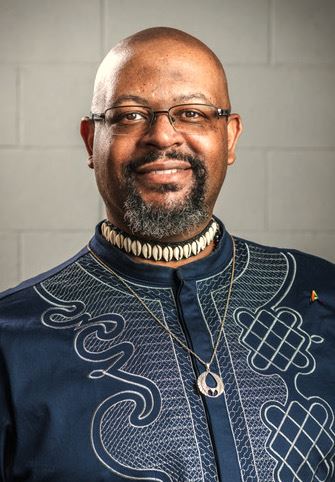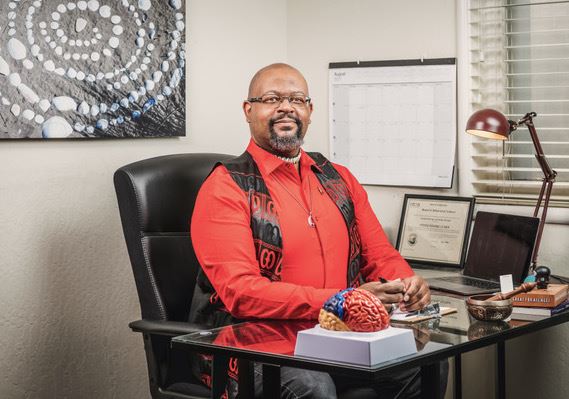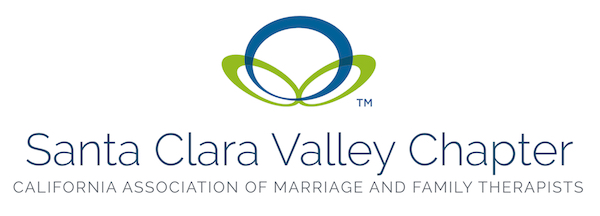 Fall 2022 Newsletter
Fall 2022 Newsletter
Dominique Yarritu (DY): Tell me a little bit about what brought you to being a therapist.
Perry Clark (PC): I was in a place to be ready to receive the message from the universe to go study psychology. I made the move in a few months over 10 years ago.
DY: Had you had experience with therapy before or was it something out of the blue?
PC: In high school I was part of peer counseling. Although I did have some of the concepts down, I wasn’t ready for it. Others could see those qualities in me but I was not emotionally and mentally ready yet for what I do now.
DY: What made you choose the Institute of Transpersonal Psychology (ITP)?
PC: I have dyslexia, so I needed a place that would not require a thesis for graduation. Writing is not something I enjoy doing; I do it because it’s necessary, and if I do, it’s got to be planned out, to be very focused because it exhausts me. ITP didn’t require a GRE either. I liked the spiritual bend to it compared to the scientific evidence-based theories that we see at so many other schools. So I’m trained as a transpersonal psychotherapist and I slip that into my work as much as I can.
DY: So tell me more about transpersonal therapy.
PC: It’s looking at and including the essence of our connection to spirit or the universe in its many forms: I’m talking the universe, god, or ancestors. I tend to be dynamistic and consider all the seen and unseen connections influencing the situation. So for any client coming in, what are the obvious and unseen things that are influencing them? Having a demanding job or boss is one influence but equally they have the ghost of the oppressive parent still playing in their head. How are these two things working together or playing against each other?
DY: Is it your only approach or are you more eclectic?
PC: I’m more eclectic and I have a lot of flexibility, which can work against me at times but it means that I’m getting into things that others might not immediately get into; or I may find my way around a defense in a way that others wouldn’t have thought of. I use Brainspotting consistently. Then there is degrees of attachment, of transpersonal, my own version of narrative, some solution focused, and how family relationships impact the client now.
DY: So, when did you start practicing?
PC: I graduated ITP in 2014, did my internships, took 2 years to pass the licensing exam (due to the learning difference), and once I had passed at the end of 2018 I started my practice in 2019. So, 3 years of private practice and most of it during the pandemic.
DY: Tell me about starting your practice during the pandemic and what type of clients/patients came to you?
PC: During that period I encountered a number of clients I ended up firing: many of them with the qualities of personality disorders, either narcissism or BPD. I tried to refer them out to the dialectical behavioral folks but ultimately it didn’t go well so I had to fire them. I know lots of people will frown on it but there’s a reality to that. I do understand they need help, I’m just not the one to do it because of my own history. Many of them embodied a lot of the racism we saw come up during the election period. People said that having more exposure to POC is important for growth. Great! What does that mean for us, as POC? What price is being accounted for us? I thought and felt: “I’m not the one to rescue you, you’re doing actually more harm to me than I can help you because you haven’t gone past from what it is that is holding you in that place. Or you don’t have an interest in getting past that place”.
DY: How is it for you being a therapist of color?
PC: It’s a very tricky place to be, not including dealing with my learning disability/neuro-diversity. A lot of things are not set up to account for that; there were obstacles along the way. I understand some methodologies exist as gate keeping but there are ways in which they are inherently designed to keep some people out. In many ways the system keeps many people of color out, too. Then there are the particular philosophies of therapy: how many of them were developed for people of color verses Bob and Jane of middle America? The way I practice is sort of what I learned, what I know is not working, how I build the parts I know need to be there for other POC and LGBT, because there are a lot of things that unwittingly are still tied in “isms”. In that case how do I change it or stop using it in my practice?
DY: So what I’m hearing is the way it’s been practiced and/or used can be both healing and really damaging, which we may not be aware of.
PC: Exactly, and to use the metaphor of biological medicine: a surgeon knows that they’re using the scalpel to slice through the skin, muscle, tissue; they’re very careful to avoid major blood vessels and arteries and that takes time for them to learn that. But what happens when they’re not paying attention or they’re malicious, it’s easy for that to get damaged, for nerve damage to happen.
DY: I saw that a big part of your practice is versed in social justice as well as work with the LGBTQIA+… and I’m interested in your work with men.
PC: I have worked with men who came to me through domestic violence issues saying “I’m not the bad guy”. There’s a bias in domestic violence: “male is always the perpetrator, female is always the victim.” But people shift when I ask “what happens when it occurs in a same sex relationship?” “What happens in a nonbinary relationship?” Yes, there’s a man who’s the perpetrator but there’s also a man who’s the victim. There’s a woman who is the victim, there’s a woman who’s the perpetrator. So, it ceases to be about sexes and it becomes the human characteristics everyone holds, which we have not acknowledged. As we’re trying to rebalance our relationship with men, another untold mechanism is the expectations wrapped up in a binary paradigm as opposed to seeing it as a human characteristic. Somehow, it’s perfectly ok for a man to be the house person but there is still so much judgment about it, which also comes from women. And that may explain why they wouldn’t sit with a female therapist.
DY: So when you have these conversations with them, what happens? How do they shift?
PC: It’s the feeling of being more ‘humanized’ as opposed to being in the ‘masculine box’. As a gay man part of the LGBT community, I’ve had to deal with the question of my masculinity, where does it sit, where’s the femininity in this, where is the nonbinary, accepting that there are certain life expectations that I’m never going to fulfill or have accepted that I’m choosing not to fulfill and I’m not less than anybody because of it. “It’s ok for you to be this way”, I always say to men and boys “it’s ok that you cried”. The question is not that you cried, it’s “who did you cry in front of?” Was this the same person who was going to recognize and validate your vulnerability or shut it down because they were uncomfortable with it? That’s a recognition that is not encouraged.
DY: What other issues do men bring to you? What do they come for?
PC: A lot come for symptoms of anxiety or depression or they feel confused, disconnected and numb. There are multiple reasons: from the standpoint of the over involved or neglectful parent who want them to be a certain thing, or live vicariously through them. There are differences in relationship statuses such as non-consensual polygamy or polyamory; how they grew up in an environment where religion pushed them away because this other form is non-functional. However, men come for the same issues [as women], it’s what triggers them that’s different. It’s moving through shame for having been vulnerable, for example. One of the best ways to associate it with is how we use language and how tough became synonymous with invulnerable: that is far from the truth and one of the deeper notions that men have had to move through. There’s a well known African saying that it takes a village to raise a child and that the village is there to nurture that child. And in the same vein, if the child doesn’t get nurturance from the village, s/he is likely to burn it down to keep warm. So what have we nurtured for men, what have we nurtured for their role within a family?
DY: What about the LGBT population?
PC: Most of the time, it’s dealing with a lot of “isms” like homophobia mixed with racism, misogyny and body image issues too. Also the idea of the stereotype of the male who should be flamboyant and hyper masculinized or hyper femininity rather than seeing people as humans with variety. Any way I say this, it might come out negative but I’ve noticed that we have a strong push for trans, which is great, and there’s definitely a need there, but we’ve come to forget about the ongoing struggles for many in the LGBT community. We’re only now coming to a point when it’s more acceptable to come out. Yet, there are still a couple of generations that are late coming out and we’re still needing to deal with what it means for them to be gay or lesbian. That hasn’t gone away and it’s getting lost in the push for trans. When I work with trans, I’m here to work with them as they integrate their trans self into the rest of their life. Working with what it means to deal with sexual harassment, what it means to see the world from a masculine standpoint of view, and what it means to integrate that.
DY: What do you do outside of the business?
PC: I run a podcast called Untying Knots: Mind and Souls Untethered that focuses on mental health, is BIPOC-centered, dealing with more of the geek and nerd environment, dealing with men, LGBT issues, spirituality, and kind of the intersectionality of that. It’ll be a year next month. I also do a lot of social media around this. I listen to podcasts (reach out to Perry for the list). I was invited through LinkedIn and after realizing that the request was not a scam, I was happy to offer something that was really at the intersection of where I find myself.
DY: I heard you mentioned earlier that you went to Comicon.
PC: Yes, I went there as part of two panels presenting there: one on supporting BIPOC, the other on supporting LGBT and neurodiverse. This was an item off my bucket list.
DY: Is there anything you’d like to add.
PC: I’d like to encouraging more people to recognize the amount of stress that BIPOC and people in the LGBT community are still going through even now with the whole issue of monkeypox, which is bringing up a lot of concern, trauma for those who survived the aids crisis, let alone those who witnessed that crisis, I grew up during that crisis, so we’re seeing a lot of “isms” at play here. Otherwise, listen to my podcast.
 Perry Clark grew up in Santa Clara, Ca, and is a Licensed Marriage and Family Therapist. He graduated from the Institute for Transpersonal Psychology in 2014, with an MA in Counseling Psychology. After receiving his license he opened his private practice, “Untangle and Grow Counseling'' in 2019. In early 2021, Perry became a Certified Brainspotter Practitioner, and has plans to become a consultant in the future. In the Fall of 2021, Perry launched his podcast “Untying Knots: Minds and Soul Untethered'' to discuss topics around the intersections of mental health, nerd & geek interests, creativity, LGBTQ+, neurodiversity, men’s health, and spirituality from and for BIPOC communities who share these same identities with Perry.
Perry Clark grew up in Santa Clara, Ca, and is a Licensed Marriage and Family Therapist. He graduated from the Institute for Transpersonal Psychology in 2014, with an MA in Counseling Psychology. After receiving his license he opened his private practice, “Untangle and Grow Counseling'' in 2019. In early 2021, Perry became a Certified Brainspotter Practitioner, and has plans to become a consultant in the future. In the Fall of 2021, Perry launched his podcast “Untying Knots: Minds and Soul Untethered'' to discuss topics around the intersections of mental health, nerd & geek interests, creativity, LGBTQ+, neurodiversity, men’s health, and spirituality from and for BIPOC communities who share these same identities with Perry.
Fall 2022 Newsletter
